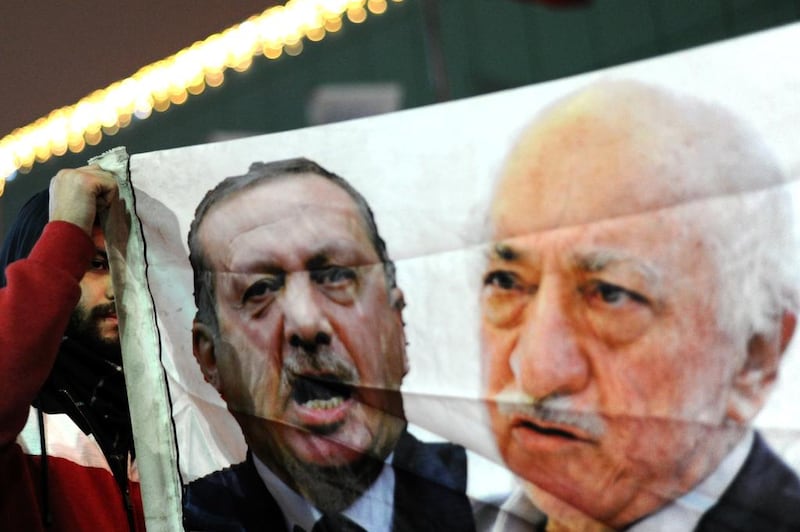ISTANBUL // Spiritual leader Fethullah Gulen dismissed allegations that he instigated a large-scale corruption probe that is rocking Turkey’s government in an interview broadcast on Monday.
Speaking to the BBC in his first TV interview in 16 years, the 74-year-old Mr Gulen said it was impossible for him to issue orders to Turkey’s judges and prosecutors.
“I have no relation with them. I don’t know even 0.1 per cent of them,” he said.
Turkey’s prime minister, Recep Tayyip Erdogan, has accused followers of Mr Gulen, who are influential within the country’s judiciary and police, of acting as a “state within a state” and launching a series of graft investigations meant to destabilise his government aheads of elections this year.
Close allies of Mr Erdogan, including the sons of three government ministers, were arrested as part of the probe.
In response, Mr Erdogan reshuffled his government and fired or reassigned hundreds of police officers and prosecutors.
Speaking from his estate in Pennsylvania, Mr Gulen said those who were purged from their jobs “were not linked to us”.
He said the actions “were made to make our movement appear bigger than it already is and to frighten people about this non-existent phantom threat.
“People in the judiciary and the police carried out investigations and launched this case, as their duties normally require. Apparently they weren’t informed of the fact that corruption and bribery have ceased to be criminal acts in Turkey,” he said.
Followers of Mr Gulen, known internationally as the Gulen Movement and in Turkey as the Hizmet or service movement, claim to be present in 140 countries around the world. They run a vast network of schools, businesses, media outlets, and non-governmental organisations. While Mr Gulen does not issue directives he is known for offering guidance to his followers through regular video sermons.
In one sermon following the launch of the corruption probe in December, Mr Gulen accused the Turkish government of hypocrisy.
“...Those who don’t see the thief but go after those trying to catch the thief, who don’t see the murder but try to defame others by accusing innocent people - let God bring fire to their houses, ruin their homes, break their unities,” he said.
His followers had supported Mr Erdogan’s ruling Justice and Development Party in previous elections and cooperated in subduing Turkey’s once all powerful secular military through a series of court cases.
But in recent years rifts began to develop over Mr Erdogan’s autocratic style of rule, controversial foreign policy, and intolerance for opposition. The fissures culminated in a public dispute last November when Mr Erdogan moved to close private study halls that provided a key source of funding for the movement.
The fall-out comes ahead of local elections in March and a presidential election expected in the fall.
* With reporting by Agence France-Presse and Reuters





